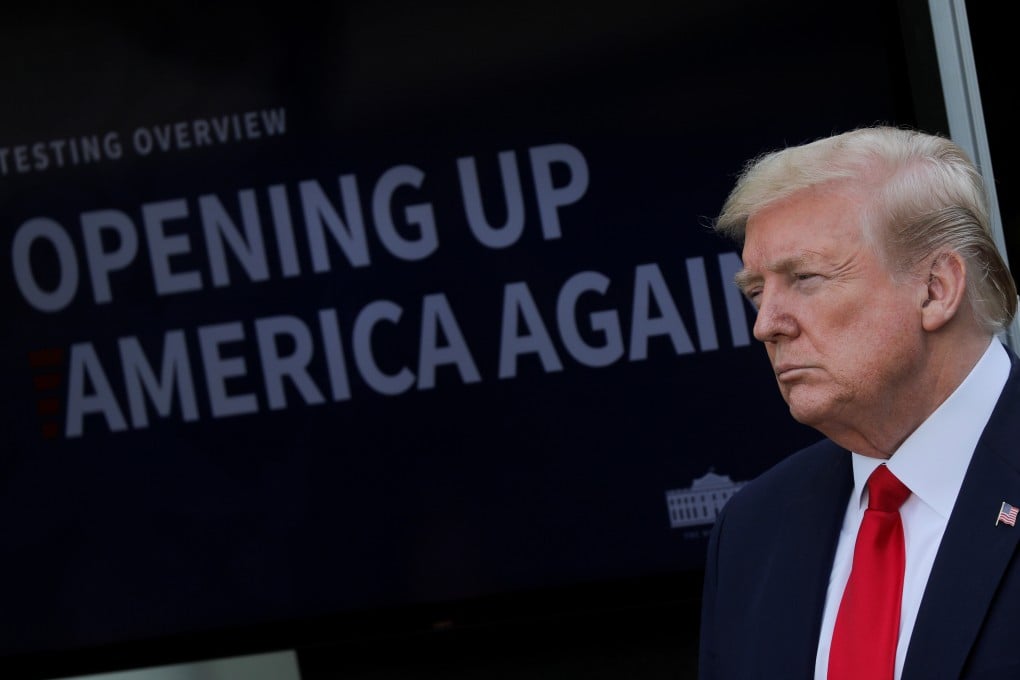Coronavirus latest: Trump says ‘we are not happy with China’ as US cases near 1 million, 56,000 dead
- US president suggested that he may seek damages from China over the coronavirus outbreak
- Next year’s Olympics will be cancelled if pandemic not over: Games chief

The number of confirmed coronavirus cases worldwide soared past 3 million on Monday – nearly 1 million of them in the United States – as President Donald Trump acknowledged more Americans would die of Covid-19 than he has recently predicted.
Around the world the pandemic has killed almost 209,000 people with the highest death toll – more than 56,000 – in the US, according to a tally by Johns Hopkins University.
Trump was asked during a White House news conference on Monday whether an American president deserved to be re-elected after losing more Americans in six weeks than died in the Vietnam war. Approximately 58,000 US troops were killed during the war.
“It’s far too many – one person is too many for this,” he added on the death toll, before taking credit for preventing more fatalities with his travel bans on foreign nationals from China and Europe.
Several US states have reopened businesses amid predictions that the jobless rate could hit 16 per cent for April.